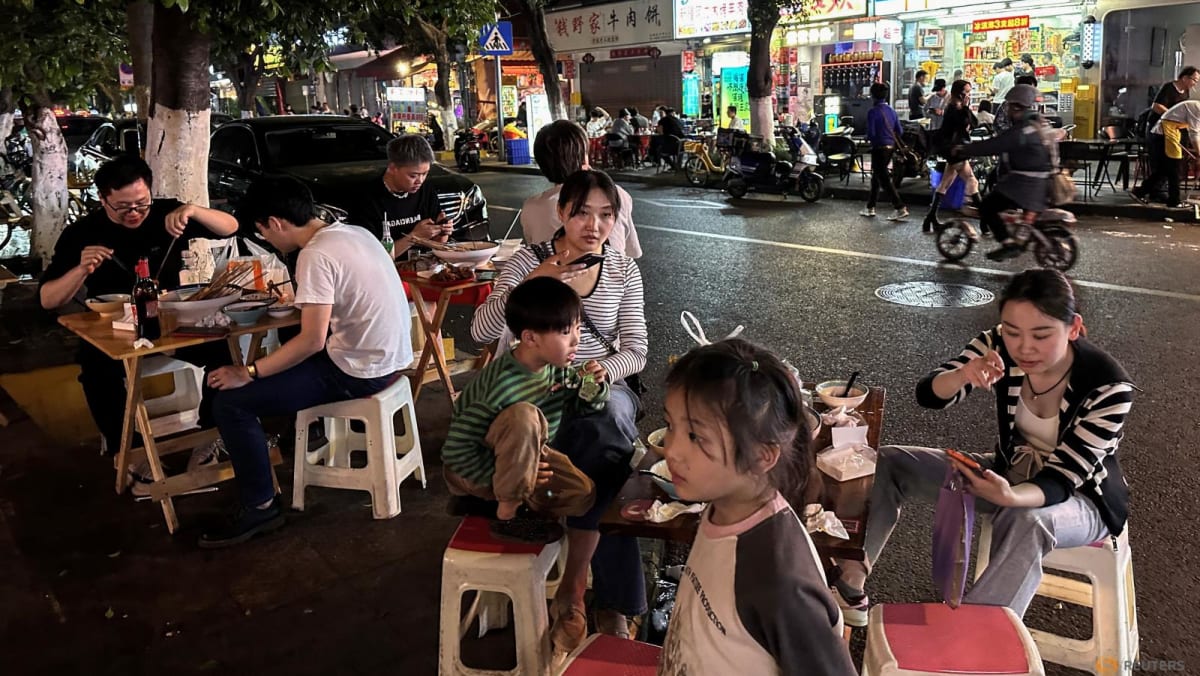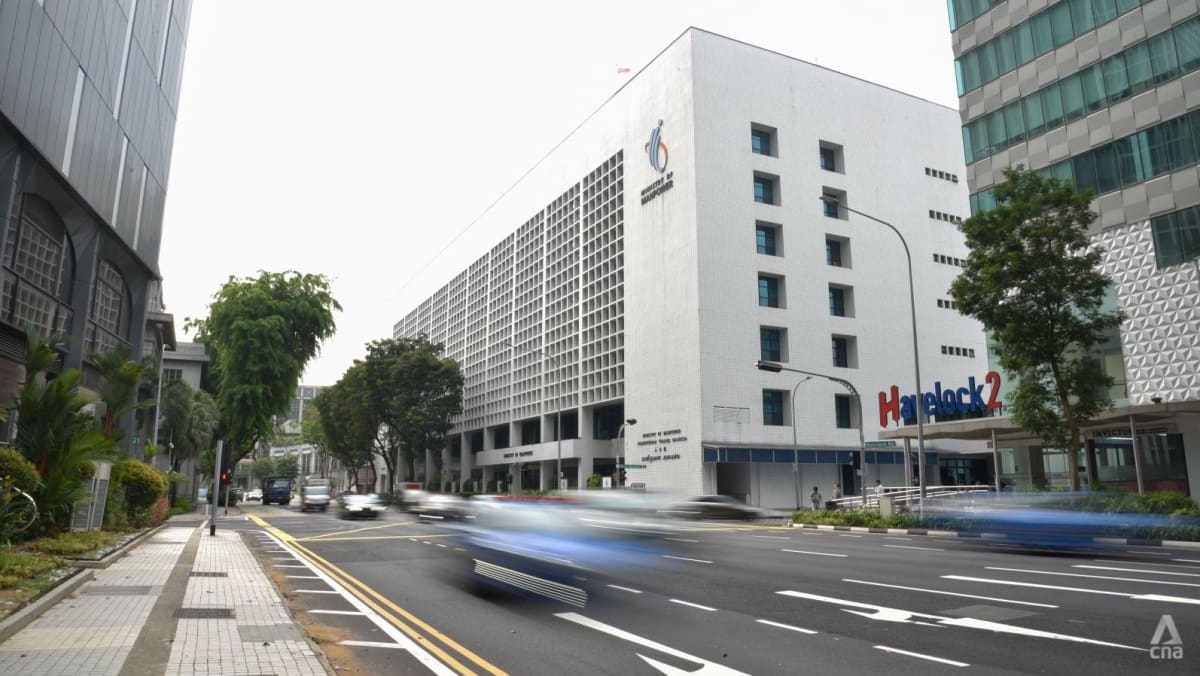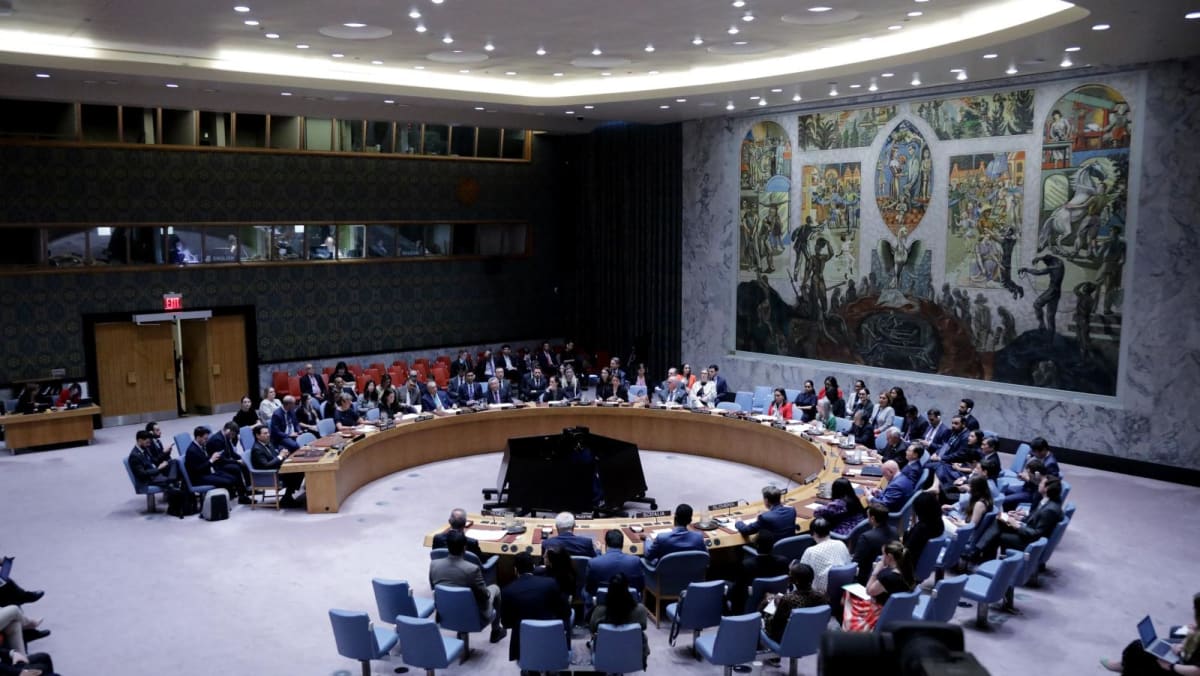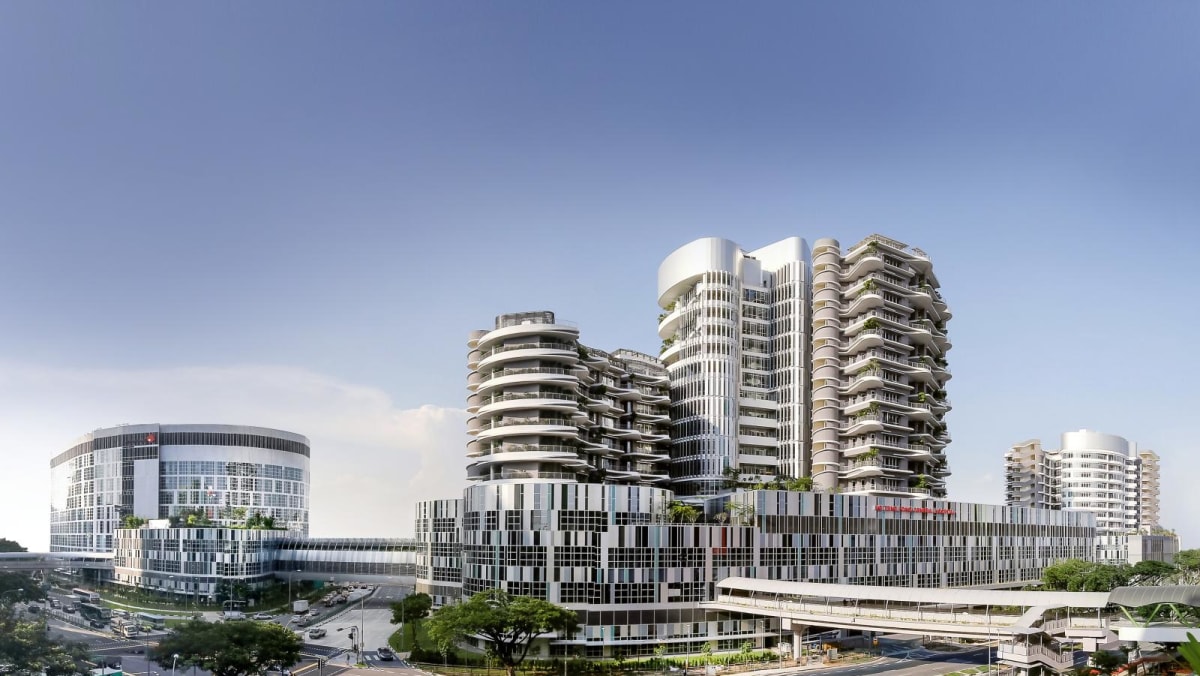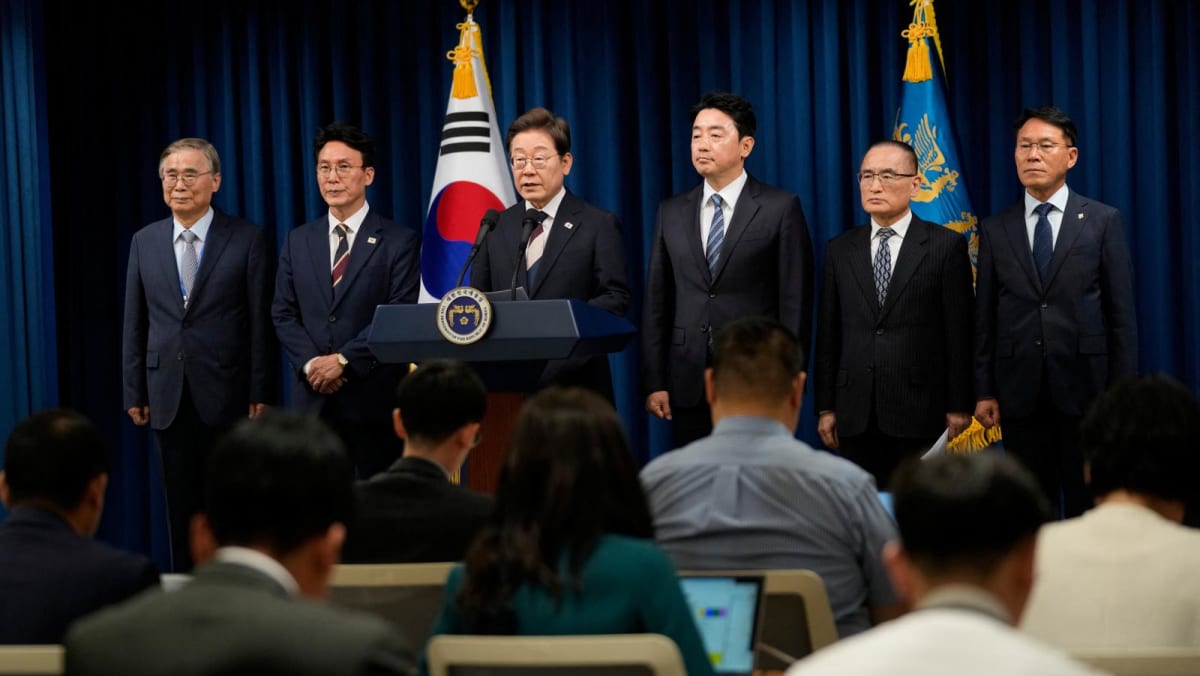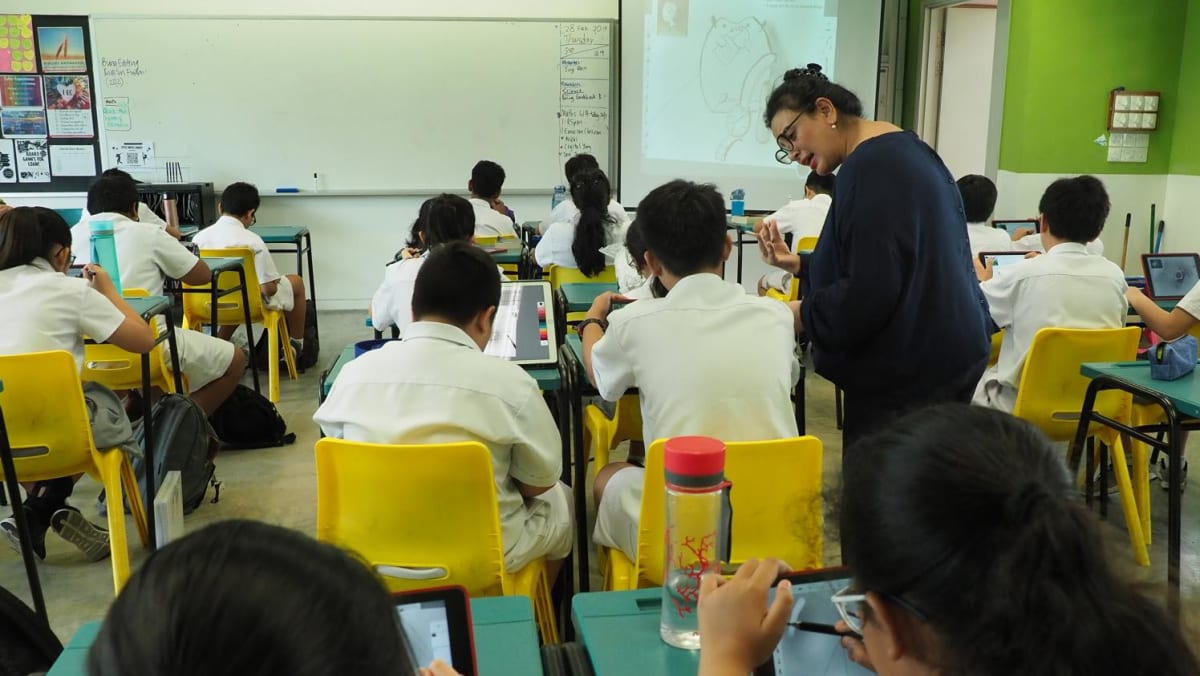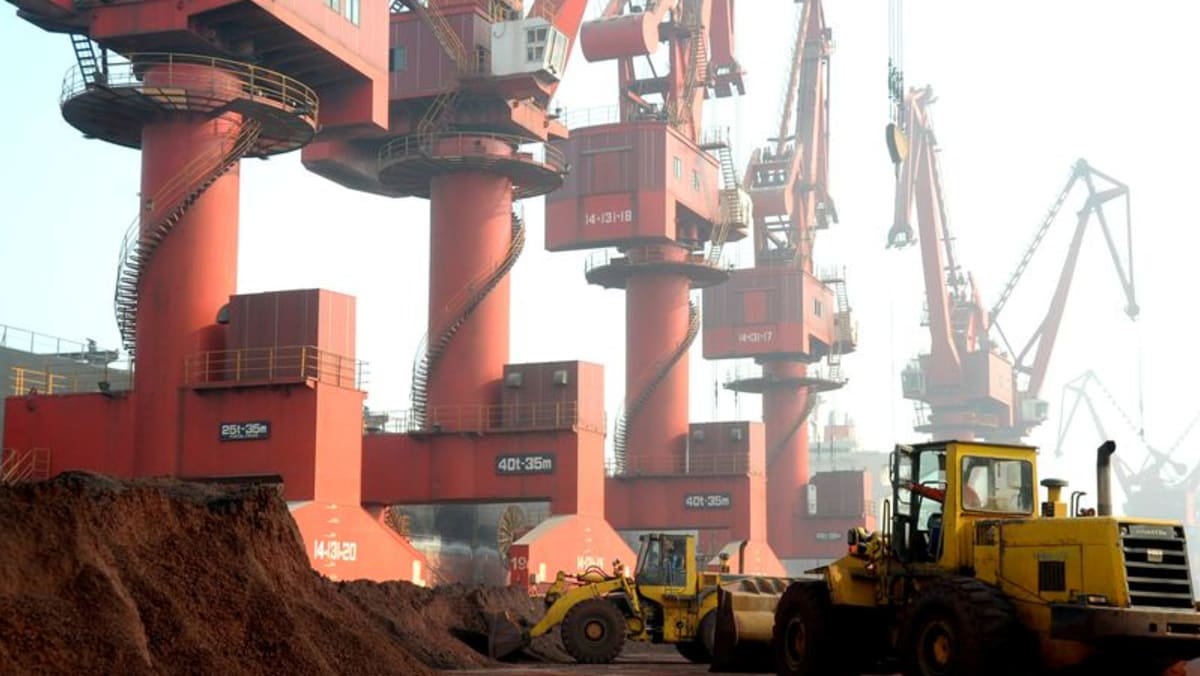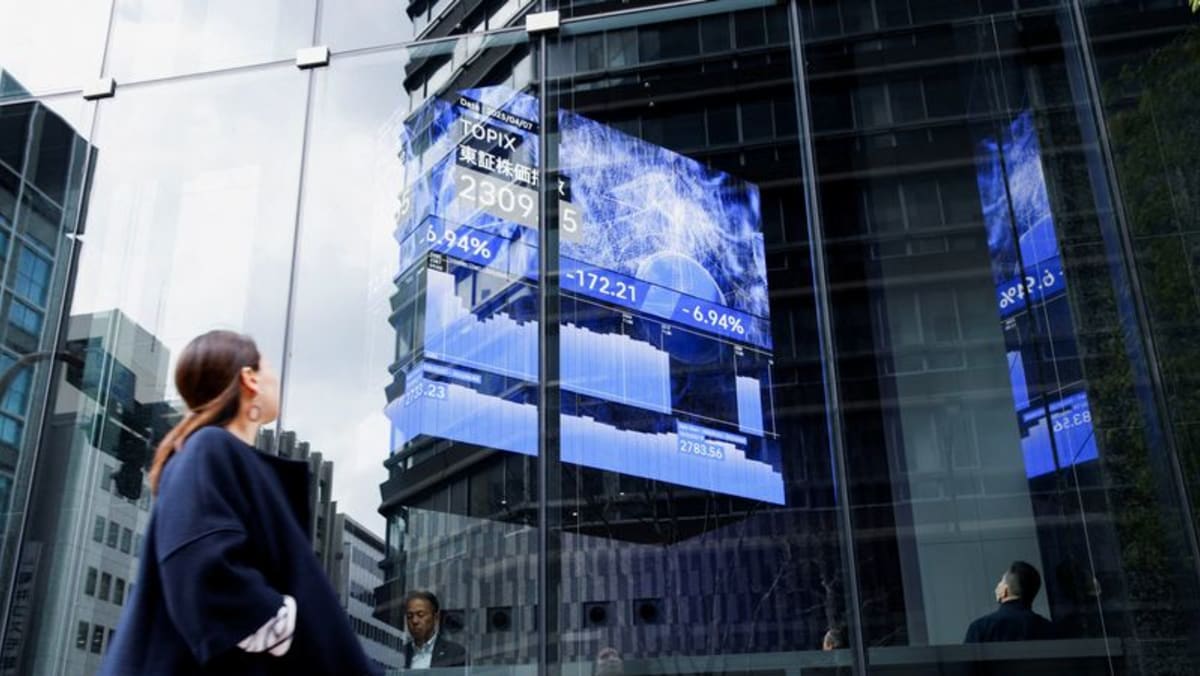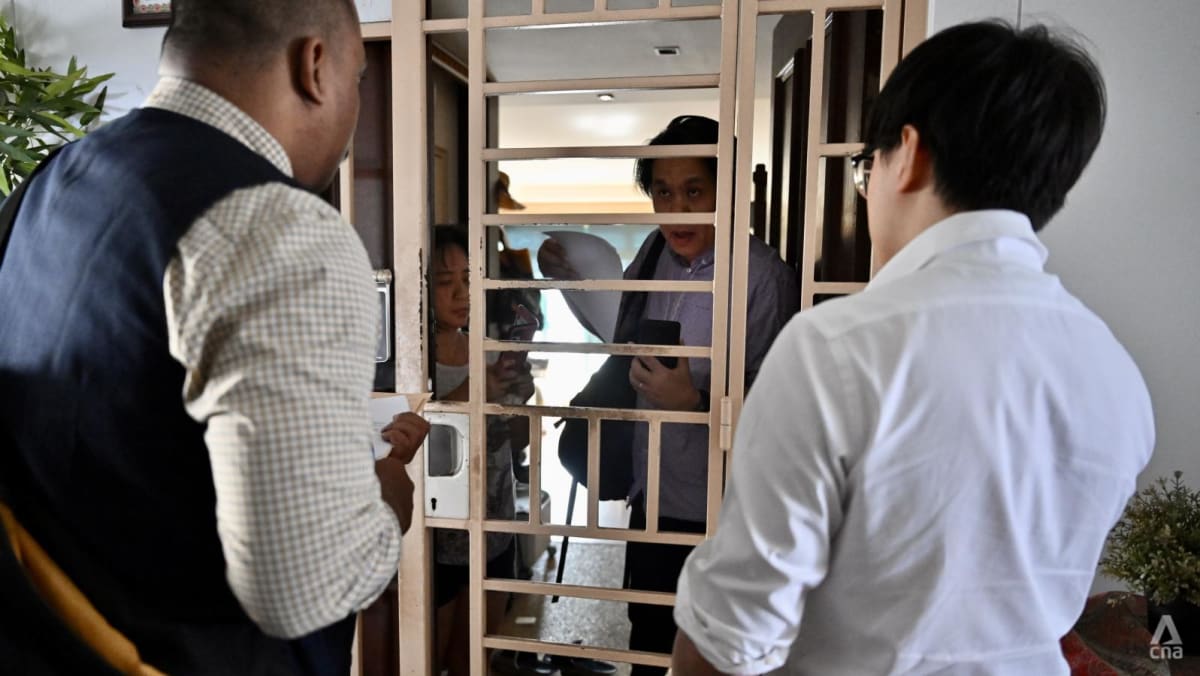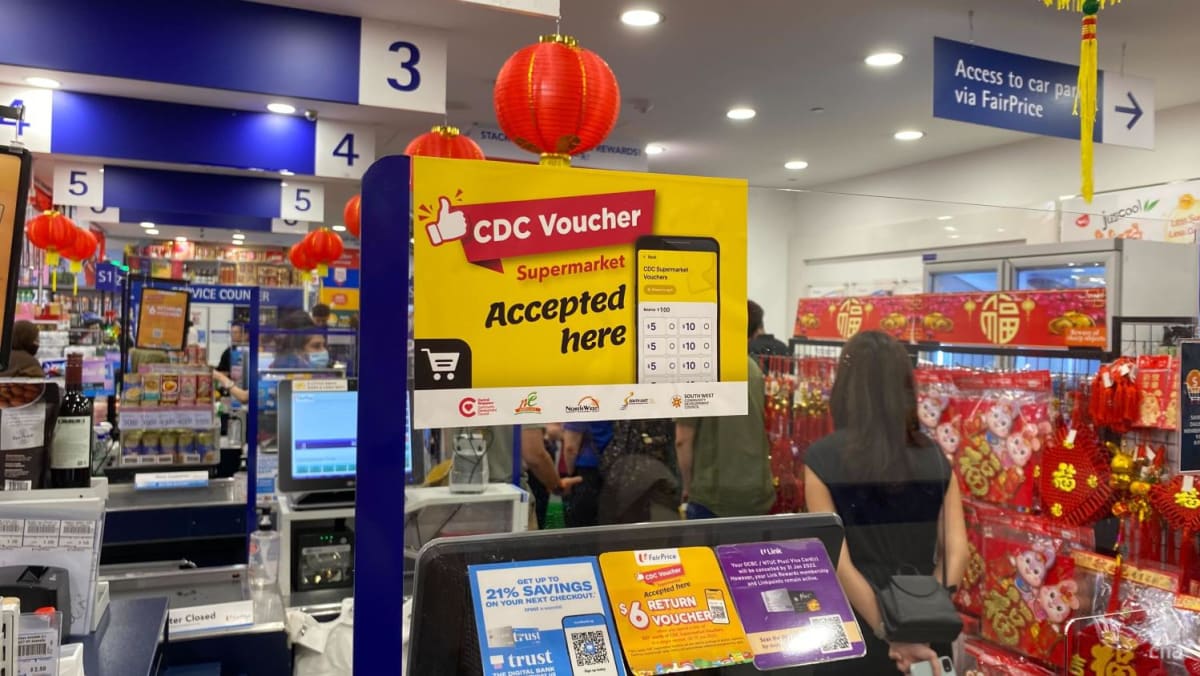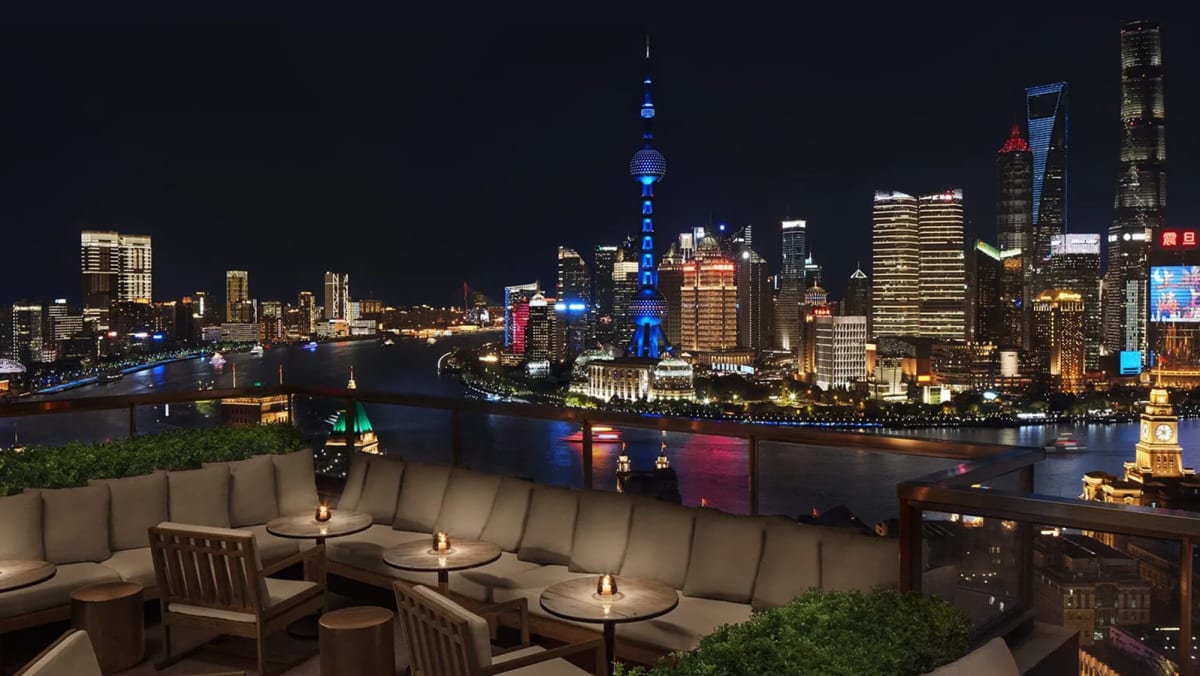The Malaysian prime minister acknowledged that it would be hard to maintain this balance and ASEAN centrality, as the Chinese president prepares for a visit to Malaysia next week.
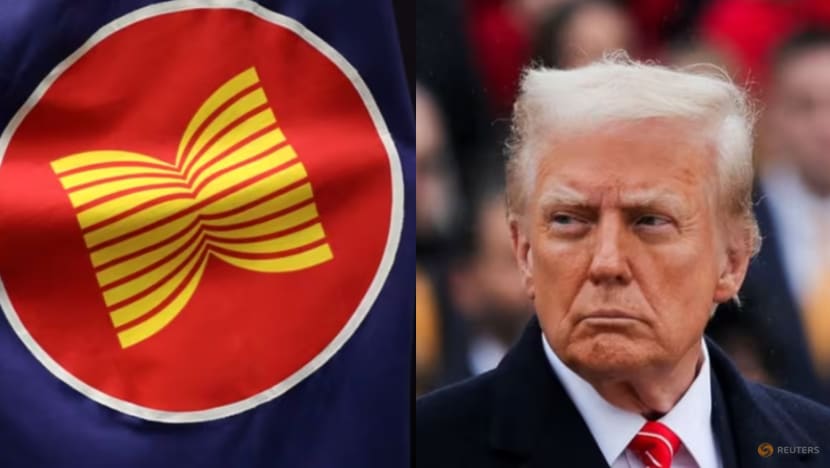
Composite photo of the ASEAN flag and US President Donald Trump. (Photos: Reuters)
New: You can now listen to articles.

This audio is generated by an AI tool.
KUALA LUMPUR: United States President Donald Trump’s “hardened stance” against China in a tariff war poses “a problem” for ASEAN nations as it will impact their economies, said Malaysian Prime Minister Anwar Ibrahim.
However, while ASEAN members need good bilateral and economic ties with the US, he stressed the regional bloc’s position is to ensure that relations with its neighbours, including China, remain “strong and formidable”.
Anwar acknowledged that it would be a challenge to maintain this balance and ASEAN centrality, particularly with Chinese President Xi Jinping's upcoming visit to Malaysia next week from Apr 15 to Apr 17.
“Our fundamentals will remain strong if we can secure peace in this region, and peace would mean being friendly to all our neighbours. And as I've said and reiterated, China is a very important player we can't ignore,” he said on Thursday (Apr 10) in giving the closing remarks of the 12th ASEAN Finance Ministers and Central Bank governors meeting in Kuala Lumpur.
His comments follow Trump’s latest U-turn on tariffs, with a Wednesday announcement that the US would pause tariffs he had imposed on dozens of countries, with the exception of China.
Currently, the United States has increased the tariff rate on Chinese goods to 125 per cent while China has raised its tariff rate on US goods to 84 per cent.
The 90-day pause will apply to what the administration termed “reciprocal” tariffs on imports from almost 60 countries and the European Union.
ASEAN, made up of 10 member states, is China’s largest trading partner. In 2024, trade with ASEAN countries accounted for 15.9 percent of China’s total foreign trade - with bilateral trade reaching US$962.98 billion, according to official statistics.
In comparison, US-ASEAN trade ranked second, totaling an estimated US$476.8 billion in 2024.
Anwar termed Trump’s tariff pause a brief respite but also said that ASEAN must work together to present a more cohesive and coherent stance both internally and in its engagement with external partners, including the US.
He said that while ASEAN has encountered some limitations and the countries have had to deal with the sensitivities of neighbours, the bloc has been an “extremely successful regional collaboration” and is an exception among other groupings.
“I'm not denying the fact that sometimes we have some minor issues here and there, but never to the extent of having so much distrust and sense of discord when we're in a meeting. So I think we should work on that,” he said, adding that the consensus was that it always needed to do more as a bloc.
ASEAN had said earlier on Thursday in a statement that it will not impose any retaliatory measures in response to the swathe of tariffs imposed by the United States, though it stated its concerns.
The grouping of Southeast Asian nations said it was their common intention to engage in a frank and constructive dialogue with the US to address trade-related concerns.
“Open communication and collaboration will be crucial to ensuring a balanced and sustainable relationship. In that spirit, ASEAN commits to not impose any retaliatory measures in response to the US tariffs,” it said in their statement.
WHAT ASEAN AND SINGAPORE SAY
Malaysia chaired a special ASEAN Economic Ministers’ virtual meeting on Thursday morning to address the impact of US tariffs on regional trade and investment and to coordinate a collective response.
The special meeting was attended by the economic ministers of all 10 ASEAN member states and Timor Leste, as well as the secretary general of ASEAN.
Timor Leste has been granted observer status and in-principle approval to join the bloc.
Following the meeting, ASEAN released its statement covering the meeting and the impact of the tariffs on member states. On the same day, Singapore’s Ministry of Trade and Industry also released a statement.
In its statement, ASEAN said that it was deeply concerned over the unilateral tariffs by the US, including the tariffs announced on Apr 2 and subsequently the most recent suspension on Apr 9.
It said that the developments had caused uncertainty and will bring significant challenges to businesses, especially micro, small, and medium enterprises as well as to global trade dynamics.
“The unprecedented imposition of tariffs by the US will disrupt regional and global trade and investment flows, as well as supply chains, affecting businesses and consumers worldwide, including those of the US.
“It will also impact economic security and stability, affect the livelihoods of millions of people in the region, and hinder economic progress in ASEAN, particularly less developed economies, and the long-standing ASEAN-US economic and trade relationship,” it said, noting that the bloc was the US’ fifth largest trading partner last year.
ASEAN said it reaffirmed its readiness to work together with the US under the ASEAN-US Trade and Investment Framework Agreement (TIFA) and Expanded Economic Engagement (E3) Workplan, to explore mutually acceptable solutions on issues of common interest.
“These include facilitating two-way trade and investment, deepening strategic trade partnerships, and enhancing supply chain connectivity and resilience through digital technology and innovation that can promote stronger regional cooperation,” it said.
TIFA, which was signed in 2006, is a framework agreement that aims to strengthen trade and investment ties between the US and ASEAN while the E3 Workplan is a framework established in 2012 by both sides to promote increased trade, investment, and economic cooperation.
ASEAN said it believed that an enhanced, robust and forward-looking ASEAN-US economic cooperation framework will contribute to the prosperity of their peoples and the broader global economy.
“Such a framework would strengthen constructive engagement, foster regional supply chains and drive innovative initiatives to ensure a resilient, secure, stable, and mutually beneficial economic relationship with particular focus on high-value sectors,” it said.
These sectors included digital services and knowledge-based industries, food, agriculture and forestry, green technology and renewable energy, advanced manufacturing and electronics, garment and footwear, travel goods, healthcare and biotechnology, and transport products and equipment,” said the statement.
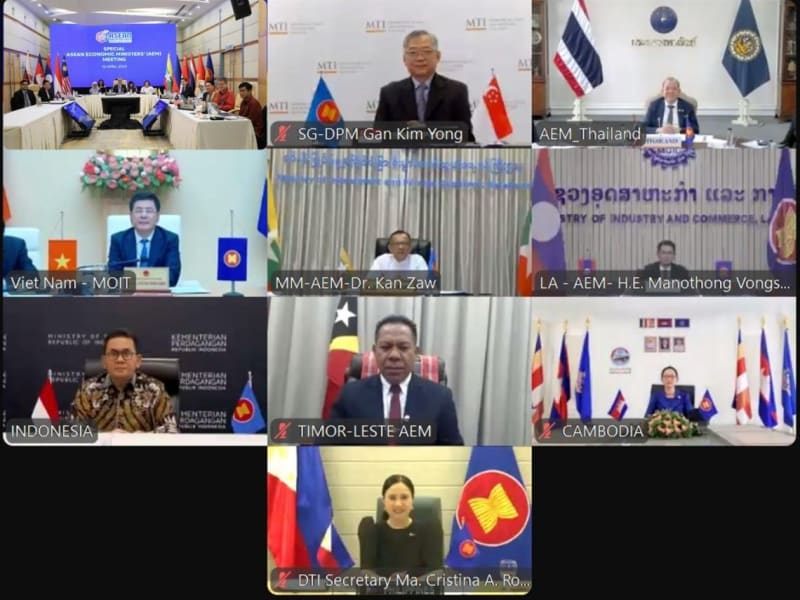 A picture of the participants of the meeting. (Source: ASEAN)
A picture of the participants of the meeting. (Source: ASEAN)
Singapore Minister for Trade and Industry Gan Kim Yong who attended the meeting said in his ministry's statement that the ongoing trade war marks a sharp fracturing of the global economy that has profound impact for Singapore and the entire ASEAN region.
Mr Gan who is also deputy prime minister said that in these uncertain times, the outcomes of the meeting are testament to ASEAN's unwavering commitment to an open, predictable and transparent rules-based multilateral trading system.
“Singapore remains determined to navigate through these challenging times in solidarity with ASEAN Member States. We will also continue to work closely with ASEAN Member States to double down on regional economic integration, including seeking out new growth initiatives such as the digital and green economies and expanding ASEAN’s economic links with external partners," he said in the statement.
The statement also said that ASEAN also expressed concerns that the escalating trade tensions between the US and China will have significant impact on the global economy and urged both countries to address their differences through constructive engagement and dialogue.
It added that ASEAN reaffirmed its commitment to a free, fair, inclusive, sustainable and rules based multilateral trading system with the World Trade Organization (WTO) at its core.
“ASEAN also signaled its common intention to engage in frank and constructive dialogues with the US to address trade-related concerns, while continuing to work with the US in other areas of mutual interest,” it said.
On Apr 2, Trump announced a new 10 per cent baseline levy on all imports coming into the US as well as country-specific taxes on goods from a host of other countries dubbed “reciprocal” tariffs.
Cambodia and Laos were the worst hit Asian economies, slapped with 49 per cent and 48 per cent import tariffs respectively. This was followed by Vietnam (46 per cent), Myanmar (44 per cent) and Thailand (36 per cent).
Malaysia and Brunei were hit with 24 per cent tariffs, while the Philippines and Singapore were hit with tariffs of 17 per cent and 10 percent respectively.
ASEAN-6 - referring to the bloc’s six largest economies of Indonesia, Thailand, Singapore, the Philippines, Vietnam and Malaysia - had a combined nominal gross domestic product (GDP) of US$3.7 trillion in 2023, according to a DBS Bank report published in January.
This figure made up more than 97 per cent of ASEAN’s total GDP of US$3.8 trillion in 2023.




